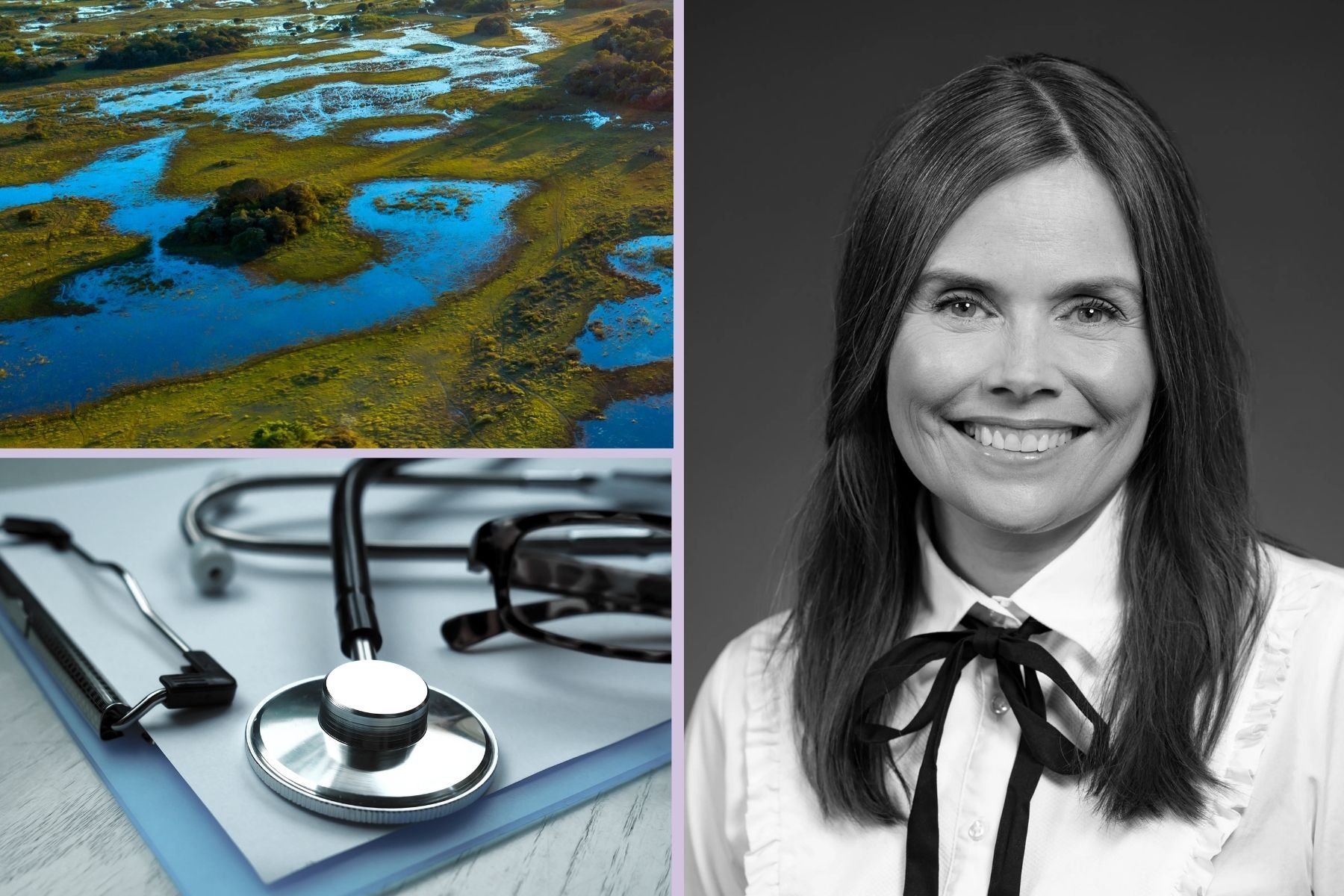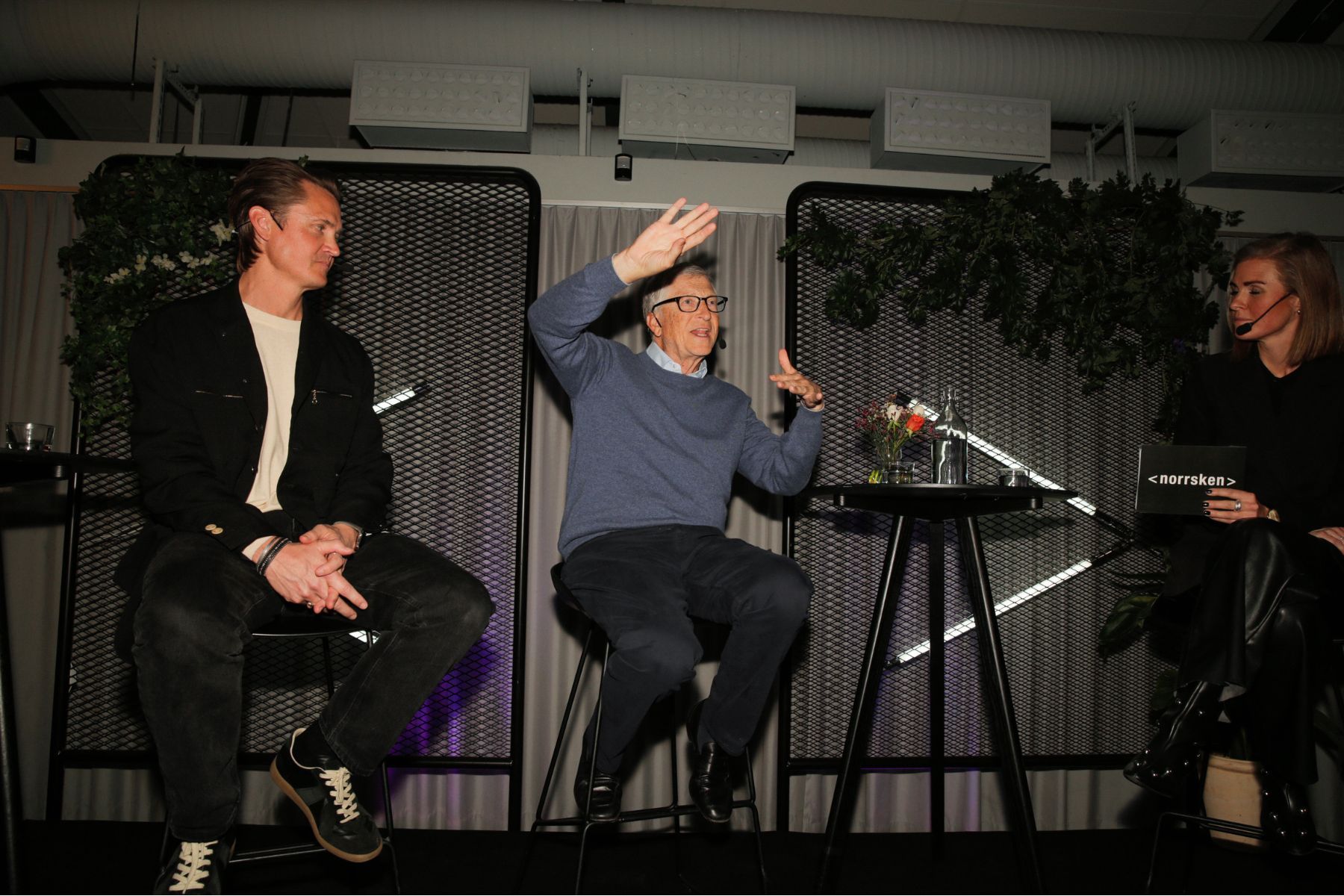Europe’s climate-health crisis: can impact investors fill the funding gap?
Recognition is growing that climate change is harming the health of people around the world, and the World Health Organisation has launched a dedicated advisory panel on the issue in Europe. With an urgent need for private financing to fund climate-health resilience projects, Impact Loop examines the ‘climate-health nexus’ and how the impact community can bring solutions.


"Climate change is already making us sick. It’s killing us, and it’s only getting worse."
So went the opening statements at the launch of the World Health Organization’s new Pan-European Commission on Climate and Health (PECCH).
The expert advisory body, led by Iceland’s former Prime Minister Katrín Jakobsdóttir, is taking direct aim at the link between climate change and health, and will work to garner stronger action on the issue from the public and private sector. One of the main action items in the PECCH plan is to 'reshape financial and governance systems for people and planet.'
"We will be thinking about how the private sector can participate," Katrín Jakobsdóttir tells Impact Loop. "We are already seeing investments made, but governments also need to think about what motivation we can create for the private sector to participate in necessary investments for this transition."
The plan also emphasises that health needs to be included in economic assessments of the impact of climate change, and urges innovative solutions that can, in the words of Dr Hans Henri Kluge, WHO’s Regional Director for Europe, "persuade ministers of health and finance, mayors and heads of government that investing in climate adaptation and mitigation isn’t a cost – it offers a return."
"In the last few years, people have been realizing that the climate crisis is also a health crisis, and it's having a huge effect on the health of normal people," says Jakobsdóttir. "Even though this has been quite clear for some time, we are not seeing enough action taken by policymakers around the continent on both climate action, obviously, but also health action."
What is the 'climate-health nexus'?
"Let's think about diets. Let's think about transport. Let's think about food security and water security."
The links between climate change and health (often called the 'climate-health nexus') are myriad, and our understanding of all the ways the two interact is still maturing.
Some examples include the way climate disasters can lead to the increased spread of air- or water-borne infectious diseases, or how heatwaves and poor air quality in urban centres can lead to or worsen respiratory illnesses and cardiovascular stress. There is also a growing recognition of the impacts of climate change on mental health, particularly among young people and members of indigenous communities.
This all of course has implications for countries' healthcare infrastructure and insurance markets, quite literally pushing up the cost of the climate crisis.
Jakobsdóttir says the work of the panel will be to look at all these various interconnected issues and provide holistic solutions to policymakers and the private sector: "Let's think about diets. Let's think about transport. Let's think about food security and water security."
Climate and health: the logical next step for impact investors?
The impact community has long been turning its attention to climate adaptation, as the effects of climate change become more real and more intense.
"Climate change is already here, the effects are already here and affecting especially the most vulnerable," Arturo Benito, co-founder and CEO of Impact Bridge in Madrid, told Impact Loop earlier this year.
With that in mind, it’s becoming more common to see major European VCs feature health and climate as their two main verticals. This year, the Alliance Nordic III fund closed its first round, with a "strong focus" on climate tech and digital health. Likewise, Berlin-based early stage investor Revent closed €100m to focus on climate, health and 'empowerment.' And impact giants the Norssken foundation announced €300m in June, with health and climate the first two priorities.
What things like the launch of the PECCH suggest is that there is still the need for more joined-up thinking between the two verticals. All the more the case as Europe's attention – and investment money – is turning away from climate and towards defence and security.
"Europe has been very focused on security issues, and that's absolutely understandable," says Jakobsdóttir, "but we cannot talk about security in these narrow terms. We need to think about human security, and that applies for everybody."
US impact heavyweights sound the alarm
On the US side, the potential for investing into climate-health opportunities seems to be gaining more purchase.
Late last year Rajiv Shah, the president of the US philanthropic Rockefeller Foundation, turned to LinkedIn to air his thoughts on climate and health.
There is, he wrote, a "significant need for collaboration between health, meteorology, and other relevant sectors" in order to create "coordinated interventions and effective climate services for health."
Most notably, Jay Koh, the legendary founder and Managing Director of US-based impact investing giants The Lightsmith Group, has himself posted a lot on the topic, drawing a direct line between climate resilience funding and human health.
Koh is widely regarded as the frontrunner of adaptation impact investing. He’s known for coining the phrase "unavoidable opportunity" regarding climate resilience and adaptation investing, and recently he has begun describing the climate-health nexus that way as well.
Many climate-health solutions are already here
One can find a number of health- and climate-tech startups already in the impact ecosystem that can contribute to adapting to the climate-health nexus. Disaster prediction startups such as OroraTech and 7Analytics can help populations prepare for, and therefore mitigate, the health impacts of climate disasters as they get more frequent. Likewise farm-tech is already being harnessed to enhance crop yields and nutrition amid more adverse conditions. Social impact projects hold great promise in holding communities together amid severe challenges.
The potential climate-health applications of existing impact companies seems endless. The question is whether the climate-health impact of a startup or project will get the attention, and funding, it deserves.
Jakobsdóttir says the model of previous initiatives for social and environmental benefit, particularly in her home country of Iceland, can point the way to how this new emergent challenge can be addressed by the impact community. A lot of that success will depend - as seen in places like Iceland - on government guidance.
"We have seen very positive initiatives coming from companies (in Iceland) that really want to invest in sustainability, in green transition. But what we also see is that you need incentives so it is more economically sound to invest in the green transition (and) we also need regulation."
Get full access to Europe's new platform for impact news
- Quality journalism, interviews, investor profiles and deep-dives
- Daily newsletter with top stories, latest funding rounds and roundup to keep you in the loop
Keep reading – get in the loop!
- Håll dig i loopen med vårt dagliga nyhetsbrev (gratis!)
- Full tillgång till daglig kvalitetsjournalistik med allt du behöver veta inom impact
- Affärsnätverk för entreprenörer och investerare med månatliga meetups
Fortsätt läsa – kom in i loopen!
- Håll dig i loopen med vårt dagliga nyhetsbrev (gratis)!
- Full tillgång till daglig kvalitetsjournalistik med allt du behöver veta inom impact
- Affärsnätverk för entreprenörer och investerare med månatliga meetups









